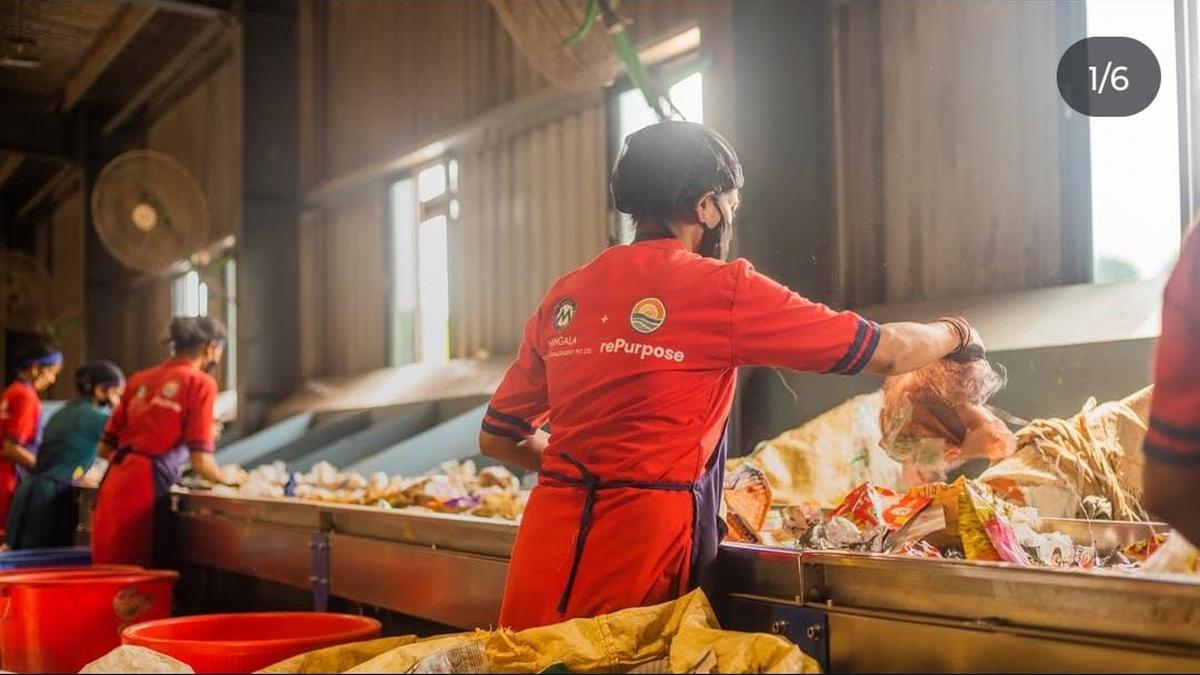
Mangala Resource Management achieves over 2,000 tonnes of negative carbon emission in 2023-24
The Hindu
M/s Mangala achieved -20,58,256 kg CO2-eq carbon emission through waste management, recycling, and composting techniques.
A comprehensive environment impact assessment (EIA) study for 2023-24 concluded that M/s Mangala Resource Management Pvt., Ltd., through waste segregation, recycling and composting techniques achieved net negative carbon emission of-20,58,256 kg CO2-eq.
M/s Mangala partnered with Greener Sustainability Accelerator and J-PAL to conduct the EIA. The study assessed the company’s efforts in mitigating carbon emissions through waste segregation, recycling, and composting techniques, said company Managing Director Dilraj Alva in a statement here.
An eco-startup inspired by the Ramakrishna Mission’s Swatch Mangaluru Abhiyan, M/s Mangala has emerged as a leader in sustainable waste management. The company, operating across multiple locations in Coastal Karnataka, has been recognised for its outstanding contributions to environmental conservation and carbon mitigation.
M/s Mangalal has been instrumental in advancing waste management solutions by establishing Material Recovery Facilities (MRFs) at strategic locations, including, Nitte in Karkala taluk, Narikombu in Bantwal taluk, Yedapadavu in Mangaluru taluk and Kedambady in Puttur taluk. These facilities play a crucial role in sorting waste for recycling, thereby reducing landfill waste and promoting resource recovery.
Furthermore, the company has initiated a zero waste campus program in collaboration with renowned institutions, including Kateel Sri Durga Parameshwari Temple, Nitte University Campus, Deralakatte and Infosys campus in Mudipu, Mr. Alva said.
The EIA study noted that efficient waste sorting for recycling and food waste composting using the Hermi Compost method were the major mitigation factors contributing to negative carbon emission.
Mr. Alva said M/s Mangala remains steadfast in its mission to promote circular economy principles by expanding waste recovery and recycling initiatives, implementing cutting-edge composting techniques and collaborating with local bodies and educational institutions to spread awareness about sustainable waste management.

It is not often that an election in the Thiruvananthapuram Corporation makes much news outside Kerala or even the capital. But the elections in 2020 were different as it culminated in the Communist Party of India (Marxist) [CPI(M)]’s Arya Rajendran becoming the youngest Mayor of the Corporation at the age of 21, an event which got attention far and wide. Now, five years later, an old tweet on that election by another young person in the running to be the Mayor of New York has gone viral.

 Run 3 Space | Play Space Running Game
Run 3 Space | Play Space Running Game Traffic Jam 3D | Online Racing Game
Traffic Jam 3D | Online Racing Game Duck Hunt | Play Old Classic Game
Duck Hunt | Play Old Classic Game










